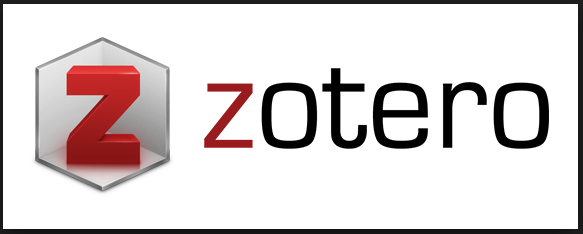Development of Personalized Recommendation System for Online Educational Content Based on Machine Learning
Keywords:
Personalized Recommendation System, Machine Learning, Singular Value Decomposition (SVD), Adaptive Feedback, Educational ContentAbstract
The rapid growth of online educational platforms has increased the demand for intelligent recommendation systems that can personalize learning content to match individual learner needs. However, traditional methods such as Content-Based Filtering (CBF) and Collaborative Filtering (CF) often struggle with issues like data sparsity, limited adaptability, and cold-start problems. This study aims to develop a personalized recommendation system for online educational content by integrating Singular Value Decomposition (SVD) with an adaptive feedback loop to improve recommendation relevance and learner engagement. The proposed machine learning-based method captures latent user-item interactions and dynamically updates recommendations based on real-time user feedback. Experimental evaluation using a dataset of simulated learner interactions demonstrates that the proposed model significantly outperforms baseline methods, achieving higher scores in Precision (0.57), Recall (0.53), F1-Score (0.55), Mean Reciprocal Rank (MRR: 0.52), and Engagement Rate (72.1%). These results suggest that combining matrix factorization with adaptive learning can substantially enhance the performance of educational recommender systems, leading to more accurate, timely, and engaging content delivery.
Downloads
References
[1] D. G. M., R. H. Goudar, A. A. Kulkarni, V. N. Rathod, and G. S. Hukkeri, “A Digital Recommendation System for Personalized Learning to Enhance Online Education: A Review,” IEEE Access, vol. 12, pp. 34019–34041, 2024, doi: 10.1109/ACCESS.2024.3369901.
[2] A. Singhal, P. Sinha, and R. Pant, “Use of Deep Learning in Modern Recommendation System: A Summary of Recent Works,” Int. J. Comput. Appl., vol. 180, no. 7, pp. 17–22, 2017, doi: 10.5120/ijca2017916055.
[3] M. Baidada, K. Mansouri, and F. Poirier, “Hybrid Filtering Recommendation System in an Educational Context,” Int. J. Web-Based Learn. Teach. Technol., vol. 17, no. 1, pp. 1–17, 2021, doi: 10.4018/ijwltt.294573.
[4] S. Peng, S. Siet, S. Ilkhomjon, D.-Y. Kim, and D.-S. Park, “Integration of Deep Reinforcement Learning with Collaborative Filtering for Movie Recommendation Systems,” Appl. Sci., vol. 14, no. 3, 2024, doi: 10.3390/app14031155.
[5] Y. Mu and Y. Wu, “Multimodal Movie Recommendation System Using Deep Learning,” Mathematics, vol. 11, no. 4, 2023, doi: 10.3390/math11040895.
[6] S. Wu, J. Wang, and W. Zhang, “Contrastive Personalized Exercise Recommendation With Reinforcement Learning,” IEEE Trans. Learn. Technol., vol. 17, pp. 691–703, 2024, doi: 10.1109/TLT.2023.3326449.
[7] H. Chen, C. Yin, R. Li, W. Rong, Z. Xiong, and B. David, “Enhanced learning resource recommendation based on online learning style model,” Tsinghua Sci. Technol., vol. 25, no. 3, pp. 348–356, 2020, doi: 10.26599/TST.2019.9010014.
[8] X. Wei, S. Sun, D. Wu, and L. Zhou, “Personalized Online Learning Resource Recommendation Based on Artificial Intelligence and Educational Psychology,” Front. Psychol., vol. 12, no. December, pp. 1–15, 2021, doi: 10.3389/fpsyg.2021.767837.
[9] E. Buchanan, J. Aycock, S. Dexter, D. Dittrich, and E. Hvizdak, “Computer Science Security Research and Human Subjects: Emerging Considerations for Research Ethics Boards,” J. Empir. Res. Hum. Res. Ethics, vol. 6, no. 2, pp. 71–83, 2011, doi: 10.1525/jer.2011.6.2.71.
[10] G. Xu, G. Jia, L. Shi, and Z. Zhang, “Personalized Course Recommendation System Fusing with Knowledge Graph and Collaborative Filtering,” Comput. Intell. Neurosci., vol. 2021, no. 1, p. 9590502, 2021, doi: https://doi.org/10.1155/2021/9590502.
[11] J. Dai, X. Gu, and J. Zhu, “Personalized Recommendation in the Adaptive Learning System: The Role of Adaptive Testing Technology,” J. Educ. Comput. Res., vol. 61, no. 3, pp. 523–545, 2023, doi: 10.1177/07356331221127303.
[12] A. Abdi, N. Idris, R. M. Alguliev, and R. M. Aliguliyev, “Automatic summarization assessment through a combination of semantic and syntactic information for intelligent educational systems,” Inf. Process. Manag., vol. 51, no. 4, pp. 340–358, 2015, doi: 10.1016/j.ipm.2015.02.001.
[13] T. Shaik et al., “A Review of the Trends and Challenges in Adopting Natural Language Processing Methods for Education Feedback Analysis,” IEEE Access, vol. 10, pp. 56720–56739, 2022, doi: 10.1109/ACCESS.2022.3177752.
[14] P. N. Andono and R. A. Pramunendar, “Performance Evaluation of Classification Algorithm for Movie Review Sentiment Analysis,” Int. J. Comput., vol. 22, no. 1, pp. 7–14, 2023, doi: 10.47839/ijc.22.1.2873.
[15] M. Heydarian, T. E. Doyle, and R. Samavi, “MLCM: Multi-Label Confusion Matrix,” IEEE Access, vol. 10, pp. 19083–19095, 2022, doi: 10.1109/ACCESS.2022.3151048.
[16] A. Wibowo Haryanto, E. Kholid Mawardi, and Muljono, “Influence of Word Normalization and Chi-Squared Feature Selection on Support Vector Machine (SVM) Text Classification,” Proc. - 2018 Int. Semin. Appl. Technol. Inf. Commun. Creat. Technol. Hum. Life, iSemantic 2018, pp. 229–233, 2018, doi: 10.1109/ISEMANTIC.2018.8549748.











